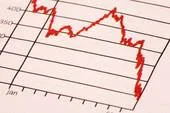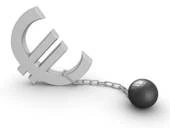Come next month, no longer wage subsidy from the Jobs Credit scheme which was mooted by our NTUC chief Mr Lim. July, higher levy for foreign workers, or pay more to hire local workers as the inflow of foreigners starts reducing. September, slightly higher contribution to the workers' Central Provident Fund (CPF) accounts.
And above all to heed national call to boost productivity and pay packages. Is this right timing to be payback time looking at the situation of European crisis sparking ?
For years, companies have creamed off a larger share of economic gains - larger than those in other developed countries or industrialising economies in Asia. As a result, workers get a slice of Singapore's gross domestic product (GDP) that is considered unusually small compared with their counterparts' share in those countries.
Workers' wages account for less than half of Singapore's GDP. In contrast, wages take up more than half of GDP in developed countries.
This means that Singapore may have achieved one of the highest per capita GDPs - at $51,656 last year. It has led some analysts to wonder if Singapore is a First World economy with what is closer to a 3rd World wage structure. Indeed our wage levels are much higher than 3rd world economies, otherwise, so many foreign workers would not be flooding into Singapore.
The issue is not our wage levels, which are reasonably high, but whether we are paid or commensurate with our per capita GDP level. So are wage levels keeping pace with economic growth? Or is Singapore's low wage share of GDP an indication that workers have been losing out? Look at our wage structure comparing to the increases in necessities, like housing or transportation cost,etc…….
THE issue of Singapore's low wage share has surfaced time and again.
In 2000, a paper by the Singapore Statistics Department highlighted this anomaly, noting that it could be due in part to conscious efforts by the Government to moderate wage increases and maintain high returns to investment largely from multinational companies. The GDP is split three ways: One share is paid out in wages, another to companies as profits, and lastly, to the Government as taxes.
In 1980, the wage share was a low 38 per cent, climbing to a peak of 48 per cent in 1985, due to high wage policies during that high-growth period. But recession hit in the mid-1980s, and the high wage policies were seen as adding to the severity of the situation as they eroded the profitability of companies.
Since then, the wage share has moderated to an average of 43 per cent to ensure a competitive wage structure. It is, however, not on a par with that in other countries with similar GDP rates.
In 2000, Singapore's wage share was 42 per cent, lower than the United States' (58 per cent), Japan's (57 per cent) and France's (52 per cent), according to the paper by the Statistics Department. In contrast, Singapore's profit share was 48 per cent, higher than these countries', which were closer to 35 per cent.
In fact, countries such as South Korea, New Zealand and Spain have a higher wage share than Singapore even though they have lower per capita GDP.
Yet, a decade later, the wage share has not risen much. At last count, it was 44.9 per cent in 2008.
In March last year, economist Linda Lim said Singapore's economic growth model has tried to 'do too much, and achieved too little' in delivering returns for Singaporeans, relative to foreign firms and foreigners. She cited the low wage share (41 per cent in 2007) and high share of profits, interest and dividends (more than 50 per cent). Foreign share of domestic production and income has also increased.
Similarly, a survey by Swiss bank UBS on prices and earnings last year showed a sobering picture for Singapore workers.
On a list of 73 cities, Singapore is the 24th most expensive city - moving up eight spots from the previous survey in 2006. It is costlier than Chicago, Hong Kong and Sydney.
But when it comes to wage levels, Singapore slipped two notches to 40th position. It is just one rung above Moscow, which is way down the 'expensive cities' list at No. 56 - or 32 places below Singapore.
With prices rising more than wages, Singapore workers cannot afford to buy as much as people in many other cities. Purchasing power in Singapore declined 10 spots to 50th place, behind cities like Bratislava in Slovakia, Johannesburg in South Africa and Kuala Lumpur in Malaysia.
While some observers question the accuracy of such comparative studies, one inescapable conclusion is that wage increases have not been on a par with economic growth.
IT GOES back to the issue of low wage share - for two main reasons.
One, the dominance of foreign multinationals, which are likely to repatriate a large proportion of their profit rather than distribute it back to workers as wages.
The success of Singapore's efforts to attract foreign investments meant that foreign investors also earned a larger proportion of the returns to capital in Singapore...Partly reflecting this, the growth in personal disposable incomes, from which households could finance their consumption, was lower than GDP growth in Singapore.
Two, an increase in the number of lower-skilled jobs created over the last decade, many of which are filled by foreign workers who depress the wages of the bottom fifth of workers here. Both trends are worrying.
‘It would be misleading to suggest that because Singapore's wage share is low, its workers' wages are stagnant despite economic growth,' says the Singapore Management University professor.
BUT whatever the difference in views, there is consensus on one issue: How the gains of growth are spread among the different groups of workers is critical. In this regard, low-skilled workers tend to get the short end of the stick compared with their higher-skilled peers, as their wages have stagnated while salaries of the rest have improved over the years.
For instance, the median monthly wage of cleaners and labourers was $1,270 in 2008, lower than the $1,389 in 1998. They were the only group of workers whose wages did not progress, according to the Manpower Ministry's report on wages last year.
The result is a widening wage gap between occupations at the top (managers) and bottom (cleaners and labourers). Those at the top earned four times more than those at the bottom in 1998; this grew to 5.12 times in 2008. This means the low-skilled workers have a less than equal share in the fruits of rapid economic growth. Income distribution is a key concern and this might be driven by economic shocks as skilled workers are better equipped to ride the business cycles as compared to the unskilled. Other developed countries have also not been spared the spectre of a growing income gap, with wages rising rapidly for the top 10 per cent - especially the top 1 per cent - at a much faster pace than for the rest.
Part of the explanation again leads back to how the profit share of GDP has risen at the expense of wages, as some top earners such as business owners also reap a bigger proportion of profits.
In the meantime, the profit share of GDP in these countries increased from around 11 per cent to more than 15 per cent in the same period. This shift is due in part to the massive surge of workers from developing countries such as China and India into the global market, which has weakened the bargaining position of workers in the advanced economies.
Does the solution for more even growth distribution lie in increasing the wage share of GDP, to tilt the balance in favour of all workers, including the low-income earners?




































